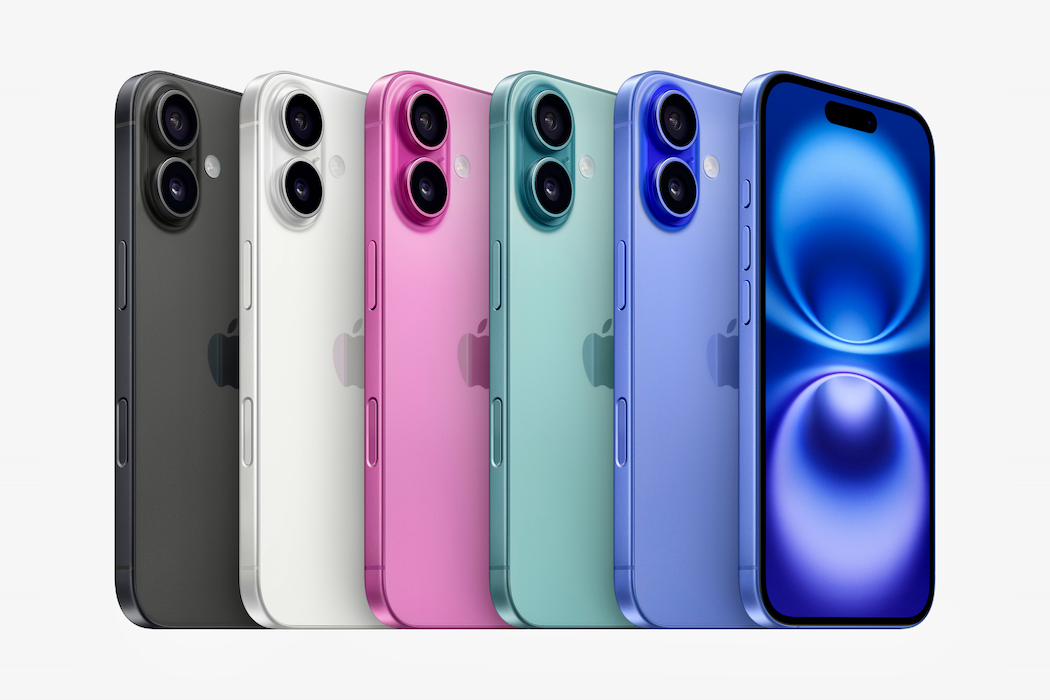
eXtensions - Friday 29 November 2024
By Graham K. Rogers

Comments on current and upcoming TV output. Film photography is proving more popular nowadays. Harman (Ilford) produced a new color film this year, and Kodak is stopping production temporarily to retool its production lines. Apple does not rush into things and may delay or even cancel projects if they are not good enough. While its modem project is under development it is a far stretch to speculate on future problems as Apple may not have decided on any deployment.
It is Thanksgiving in America this week, a festival I experienced when I studied there and far prefer to Christmas. Apparently as a result of the long weekend, Apple moved Silo and Before to Wednesday. I am enjoying both of these, particularly the excellent performance of Billy Crystal who has more depth to him than a lot of people (including me) may have realized. One of my favorite Apple series from last year was Drops of God. Based on a Manga series, it has now been renewed for a second series. It was also reported, by David Snow (Cult of Mac) this week that the series has won "the prestigious International Emmy Award for Best Drama Series".
I also enjoyed recently the movie, Wolfs, that surprisingly only had a brief cinema release before being shown on Apple TV. With the cliff-hanger ending there was some hope that there might be a follow up, but that is not going to happen. Joe Rossignol (MacRumors) reports that the director, Jon Watts, canceled the sequel because "no longer trusted" Apple as a creative partner." It was the "last-minute decision" not to have the movie release as had been planned (it had a limited, one-week showing) without consulting the director that did it. Rossignol includes the quote from Watts in full, adding, "This drama might be enough for an Apple TV+ movie of its own!"

I am still wondering about Foundation series 3, but David Craig (Radio Times) writes that [the delayed] filming has wrapped up and it is now in post-production, with the release expected in 2025. The other Sci-Fi series I am looking forward to (again Series 3) is Invasion. The renewal was confirmed by Apple. One problem with lengthy delays in such a production is how the younger stars begin to age. This has been evident in Stranger Things particularly, although the final season of Lost in Space incorporated the growth spurt of Will Robinson (Maxwell Jenkins) into the script and this went off quite well. With Invasion, several of the main characters are depicted initially in their mid-teens but the time between Series 1 and now (with Series 3 still yet to appear) being 3 years, parents will be aware that their 12-year old children turn into 15-year old aliens in that time. For an example (if you do not have a growing teenager at hand), look at images of Maxwell Jenkins from Series 1 of Lost in Space to the finale.
And while we are considering series based on outer space, Patently Apple reports that it has been announced by Apple that "its romantic comedy, Fly Me to the Moon from director Greg Berlanti, will make its global streaming debut on Apple TV+ on Friday, December 6".
 Mercedes-Benz has announced a new Apple Watch app that "includes real-time vehicle information, the ability to lock and unlock your car, and more" (Chance Miller, 9to5Mac). This comes after requests from owners and it is now no longer necessary to use the iPhone (the app is on the phone of course). I checked and the app is available for download on the Thai iTunes app store, which is hardly a surprise considering the number of this manufacturer's cars on the roads here.
Mercedes-Benz has announced a new Apple Watch app that "includes real-time vehicle information, the ability to lock and unlock your car, and more" (Chance Miller, 9to5Mac). This comes after requests from owners and it is now no longer necessary to use the iPhone (the app is on the phone of course). I checked and the app is available for download on the Thai iTunes app store, which is hardly a surprise considering the number of this manufacturer's cars on the roads here.
I will not be downloading this app, although I did complete a bucket list item when I rented a C-series a couple of years back on a trip to the UK. Currency rates were favorable and this was part of the deal with the plane ticket, so I went for it: gorgeous car.

It interests me to see how popular film photography is becoming once again. There was a drop in sales when digital cameras appeared. The simplicity involved in the new technology made a real difference. There was no longer any need for developing and printing (along with the cost) so digital cameras appeared to be the answer; and for a while they were. I had several, running from point and shoot through a series of DSLR cameras, to my current Nikon D850. This last camera has served me really well and I am often delighted by the output.

Smartphone cameras have also improved considerably. Leaving aside any of the gimmicks that some smartphone makers push, the image quality that can now be achieved is far better than some of my earlier digital cameras. Despite this, along with many others, I have returned to film, preferring to work with medium format (120) cameras than 35mm (135). In recent times, several film makers have begin to create what have been called "boutique films", while some have produced older stocks again of fims that had previously ceased production. The parent company of Ilford, known for its quality black and white films, recently produced a new color film, Phoenix, which has produced some good comments.

One of the oldest names in photography, Kodak, has just announced that it is to stop producing films for a while as it refits some of the lines on which they are made. Matt Growcoot (Petapixel) reports that CEO Jim Continenza announced that, having built up stocks in the last few months, they are modernizing the plant, "so that the company is better equipped to deal with the increased demand for film." While most photographers are still using older cameras, or buying used devices on the second-hand market (where prices have risen considerably in the last couple of years), there are now a couple of new film cameras available. Although most are 35mm, Chroma produces medium format cameras and I hope others will appear.

Apple has long had a desire to bring all the parts of its devices in-house, and its most spectacular demonstration of this is the switch to Apple Silicon. The company has always been interested in RISC technology - reduced instruction set computing with which the software directs the computer, rather than the way favored by those like Intel in which part of the instruction set is included on the central processing unit (CPU). As part owner of ARM Apple continued that interest and used the technology to develop its A-series chips. When the A8 arrived, it was clear that this same approach could be applied to the Mac, which meant, among other things, that new features could be included that would take other manufacturers months to catch up to. An early example of this is when the iPhone switched from 32-bit computing to 64-bit.
A while back, Apple bought Intel's modem chip operations, reportedly for $1 billion. Since then, it has been clear that Apple has been working on its own modem, in the expectation that at some point in the future it will be able to drop its reliance on Qualcomm, with which it has not always had a smooth relationship, and produce in-house chips that do the job. It has been clear from comments online over the last year or so that this is not likely to happen soon. This week, however, Filipe Espósito (9to5Mac) does suggest that there is a light at the end of the tunnel and the chip in development can handle 5G, Wi-Fi, Bluetooth and even GPS. There are, however, some drawbacks he writes, and the chip may not be available in all iPhone models.

Although mistakes have been made in the past, these often come to light after the product is shipped, despite the extensive testing that Apple carries out. Heat in the beautifully-designed Cube comes to mind. There was also the design problem with the connection problem called, Antennagate. Physics supersedes design, and slight attenuation when the iPhone 4 was held in a certain way could cause a call loss when the signal was weak. Luke Dormehl (Cult of Mac) calls it "overblown". I tried to force this on the iPhone 4 I had then, but it was not easy to make the signal drop and it could just as easily have been the trees outside (research at the Faculty of Engineering into wooded areas, multistory carparks and multi-level concrete buildings showed that all would cause attenuation - weaker signals).


Apple iPhone 4
Leaving aside these post-shipping problems, Apple tends to avoid selling products if the features do not work properly. The Apple car and the AirPower charging mat were not produced as consumer products. The mat was supposed to charge up to 3 devices, but although it should have been released in 2018, Apple confirmed in March 2019 that it had been canceled. This is why, currently, Apple Intelligence, is being rolled out in beta format, feature by feature, and only in certain (geographical areas). If the modem currently under development is not working fully, I doubt that Apple would risk even more censure considering the "the scrutiny the company face[s]" if anything even appears slightly awry.
I read a speculative and damaging comment this week from Martin Peers on the Information, a publication that does not appear to be particularly pro-Apple. Referencing Antennagate, he writes, "next year we're going to hear a bunch of complaints about newly released Apple iPhones dropping calls more often than previous models did." This presumes that the new modems will be in the next iPhones. I guess that unless the Apple chip can match or exceed that performance, there would be no point risking such a change. Such speculation does not help anyone, and I am sure that with the massive risks involved with what is now Apple's prime product, if the new modems are unable to match what is available from Qualcomm, any decisions will not be rushed in favour of a misfiring, home-built product.
Apple plays a long game. To drive this point home, Dan Moren wrote about the patience of Apple - referencing a 2008 patent he had written about at the time that sounds just like Vision Pro. Not until the time is right. Ben Lovejoy (9to5Mac) also comments on how the company is in for the long haul: something that those who have been following Apple for a while have been aware of. I often wonder just how this escapes the notice of Wall Street analysts who seem to have an event horizon no longer than a few days. Commenting on Moren's article, Lovejoy writes on the 2008 patent filing that "the display technology needed to turn the idea into reality didn't even exist then", but "Apple is most dangerous when it shows up late" (Dan Moren): something Wall Street would do well to remember, rather than go for knee-jerk speculation.

Graham K. Rogers teaches at the Faculty of Engineering, Mahidol University in Thailand. He wrote in the Bangkok Post, Database supplement on IT subjects. For the last seven years of Database he wrote a column on Apple and Macs. After 3 years writing a column in the Life supplement, he is now no longer associated with the Bangkok Post. He can be followed on X (@extensions_th). The RSS feed for the articles is http://www.extensions.in.th/ext_link.xml - copy and paste into your feed reader.

For further information, e-mail to
Back to
eXtensions
Back to
Home Page